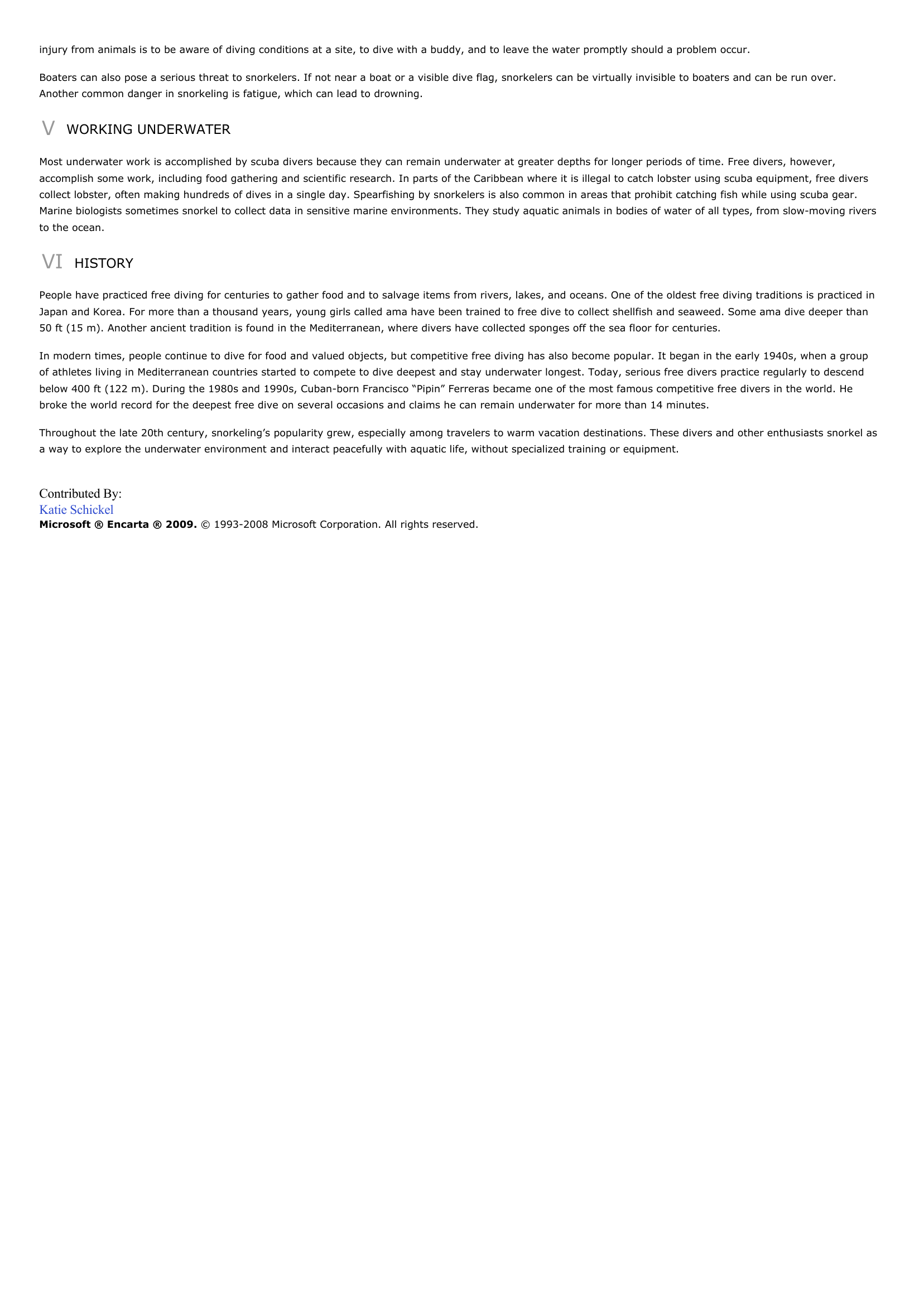Snorkeling.
Publié le 14/05/2013

Extrait du document
«
injury from animals is to be aware of diving conditions at a site, to dive with a buddy, and to leave the water promptly should a problem occur.
Boaters can also pose a serious threat to snorkelers.
If not near a boat or a visible dive flag, snorkelers can be virtually invisible to boaters and can be run over.Another common danger in snorkeling is fatigue, which can lead to drowning.
V WORKING UNDERWATER
Most underwater work is accomplished by scuba divers because they can remain underwater at greater depths for longer periods of time.
Free divers, however,accomplish some work, including food gathering and scientific research.
In parts of the Caribbean where it is illegal to catch lobster using scuba equipment, free diverscollect lobster, often making hundreds of dives in a single day.
Spearfishing by snorkelers is also common in areas that prohibit catching fish while using scuba gear.Marine biologists sometimes snorkel to collect data in sensitive marine environments.
They study aquatic animals in bodies of water of all types, from slow-moving riversto the ocean.
VI HISTORY
People have practiced free diving for centuries to gather food and to salvage items from rivers, lakes, and oceans.
One of the oldest free diving traditions is practiced inJapan and Korea.
For more than a thousand years, young girls called ama have been trained to free dive to collect shellfish and seaweed.
Some ama dive deeper than50 ft (15 m).
Another ancient tradition is found in the Mediterranean, where divers have collected sponges off the sea floor for centuries.
In modern times, people continue to dive for food and valued objects, but competitive free diving has also become popular.
It began in the early 1940s, when a groupof athletes living in Mediterranean countries started to compete to dive deepest and stay underwater longest.
Today, serious free divers practice regularly to descendbelow 400 ft (122 m).
During the 1980s and 1990s, Cuban-born Francisco “Pipin” Ferreras became one of the most famous competitive free divers in the world.
Hebroke the world record for the deepest free dive on several occasions and claims he can remain underwater for more than 14 minutes.
Throughout the late 20th century, snorkeling’s popularity grew, especially among travelers to warm vacation destinations.
These divers and other enthusiasts snorkel asa way to explore the underwater environment and interact peacefully with aquatic life, without specialized training or equipment.
Contributed By:Katie SchickelMicrosoft ® Encarta ® 2009. © 1993-2008 Microsoft Corporation.
All rights reserved..
»
↓↓↓ APERÇU DU DOCUMENT ↓↓↓


